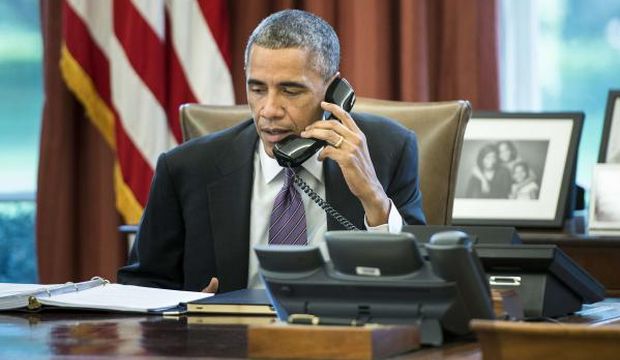The upcoming summit at Camp David may be the most significant US–Gulf meeting in the last 50 years. This is not because it would be the first time a US president has met with Gulf leaders. But rather because Washington—and this is no secret—is aware of the strain and the confidence crisis the US–Gulf alliance is now suffering. Who knows, the summit may represent an opportunity to bring this historic alliance back on track after its derailment over the past few years. It is an opportunity for the US administration to transform words into actions and dispel doubts about its regional credibility, which has suffered thanks to its handling of the Syrian crisis, its shaky stances on Bahrain, Egypt and Iraq, and the clandestine and ambiguous deal it is expected to sign with Iran.
The US is a state of institutions, where decision-making is not dominated by the White House. In addition to the president, there is the Pentagon, the CIA—which must always be close to decision-making circles—and the Congress, the institution that is capable of vetoing presidential decisions in a constitutional manner. No doubt all these institutions are aware of the negative impact which a break in the alliance with the Gulf may have on US interests. Certainly, the policies of both sides do not have to be identical. However, it would be illogical for the US to adopt policies that run against Gulf interests. Otherwise, Washington would end up damaging its own interests in the region.
The Gulf States should be commended for curbing their anger regarding the Iran deal, for guarding against any fiery response which could threaten their strategic interests with the US. Despite their anger at the US’s surprising regional stances, the Gulf States, led by Saudi Arabia, have maintained a minimal degree of relations with Washington, even with its officials constantly contradicting themselves, saying one thing in the morning and doing the opposite at night. An example here was Barack Obama’s now-infamous statement that any use of chemical weapons by Bashar Al-Assad’s regime would cross a “red-line.” Never have the Gulf States dealt with such contradictory US policies. Nevertheless, the Gulf States opted not to escalate tensions with Uncle Sam. Nor did they ever make the threat, whether publicly or secretly, that there are other superpowers out there, all of whom would be eager to gain even just a portion of the advantages which the US enjoys in the region.
Let’s assume that President Obama is not meeting the Gulf leaders in order to just verbally reassure them about the nuclear deal with Iran, since he has already done that on several previous occasions. President Obama must surely have a clear project in mind that would translate his administration’s words into actions. A US official told Asharq Al-Awsat on Thursday that “unprecedented” levels of military cooperation with the Gulf states are expected to be unveiled at the Camp David summit. If this indeed pans out, the US should also provide written guarantees to this effect, as Abu Dhabi’s ambassador to Washington, Yousef Al-Otaiba, has demanded. The Gulf–Iran gap is too wide to bridge due to Tehran’s interference in the Gulf’s internal affairs, the sectarian poison it tries to inject into the region, and the various cells it continues to plant inside Gulf and surrounding countries. All of this indicates it is highly unlikely that Iran would seek peace and stability, claims promoted by Washington. Without written guarantees, it would be easy for the US to contradict what it has agreed to only verbally. Only through such steps will the US restore warmth to its ties with the Gulf once again and prove that the nuclear deal, a final version of which is expected to be signed soon, is not open to any vague or ambiguous interpretations.
The US wants to have its cake and eat it. It seeks to have distinguished relations with the Gulf and Iran at the same time. This equation is impossible to achieve, not because the Gulf harbors any feelings of hatred towards Tehran, but rather because the Iranian regime is founded on hostility towards its Arabian Peninsula neighbors and the bulk of its policies are aimed at interfering in their internal affairs. So, this is the whole story, Mr. President.
